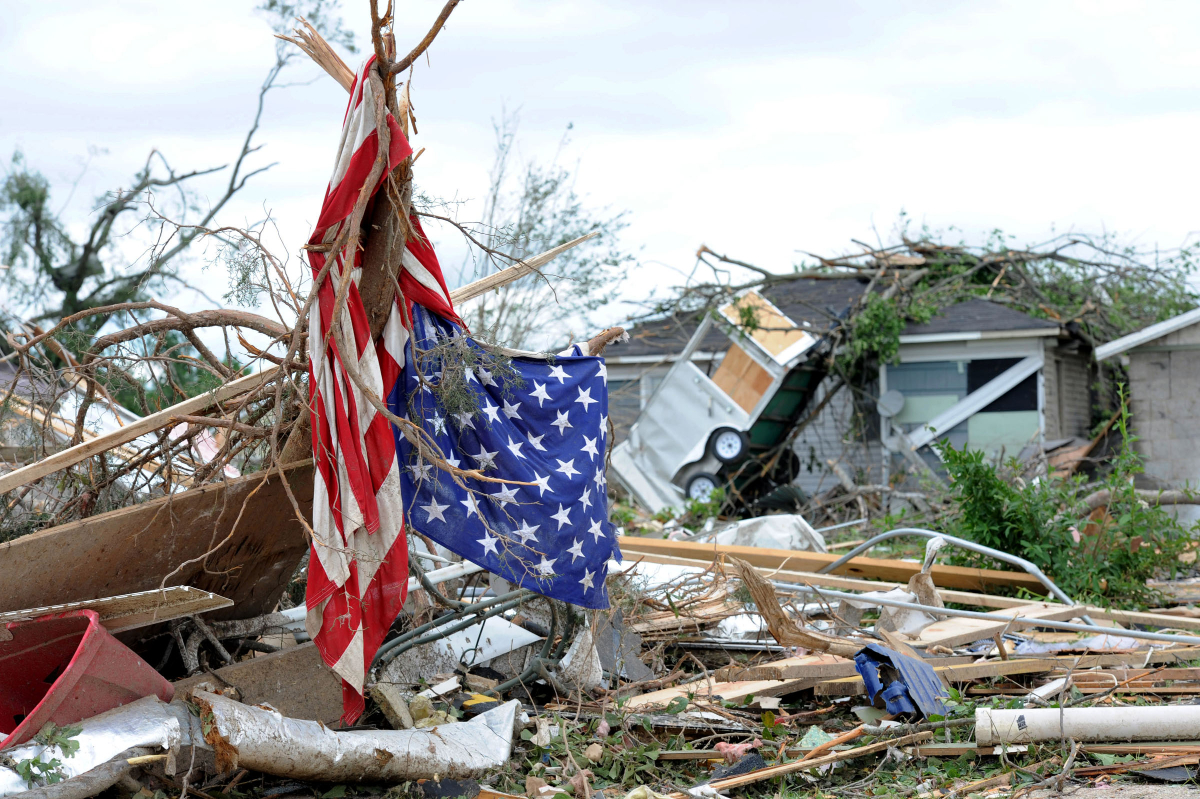Do you remember when the pandemic first began last year? Walking through the store and seeing the ransacked shelves felt so surreal, like we were all extras on an episode of “The Walking Dead” and a zombie apocalypse was heading our way.
Unfortunately, since then, things have only gotten more anxiety-inducing for some of us. For example, winter storms and extended power outages left many Texans without heat, shelter or food as grocery stores were unable to stock their shelves for many days. No wonder people are revisiting the CDC’s “Zombie Preparedness” guide.
Wait, what? The Centers for Disease Control and Prevention has a guide to help people to survive a zombie apocalypse?
Why The CDC Shared Advice For Surviving A Zombie Apocalypse
Turns out, yes, CDC really does have a guide. This is semi-frightening at first, because does the CDC actually think that zombies are the next wave of terrible things headed our way?
No. But, in an effort to help people become better prepared to withstand natural disasters and other unforeseen events — such as the COVID-19 pandemic, or the extreme winter weather in Texas — the Centers for Disease Control and Prevention put together a tongue-in-cheek but legitimately useful guide to help people know what items they need to ensure that they are ready to face anything.
The zombie preparedness blog postwas first released by the CDC in 2011, which was a costly year for natural disaster damage, with events like tornados across the continental U.S. and the earthquake and tsunami in Japan. At the time, shows like “The Walking Dead” made zombies uber popular, so the CDC capitalized on this pop culture moment to help reach more people and educate them about what they need to be safe in the event of an emergency.

“So what do you need to do before zombies…or hurricanes or pandemics for example, actually happen? First of all, you should have an emergency kit in your house,” the CDC shares on their zombie preparedness blog. “This includes things like water, food, and other supplies to get you through the first couple of days before you can locate a zombie-free refugee camp (or in the event of a natural disaster, it will buy you some time until you are able to make your way to an evacuation shelter or utility lines are restored).”
For anyone in the South who lost power last month, that last line will really hit home. It’s become very clear that many Americans don’t have the supplies to be home for an extended time without power or other safety nets. That’s why the first thing the CDC wants us to do is to make an emergency kit.
What To Put In Your Zombie Apocalypse Home Emergency Kit
So, what should be in your home emergency kit in the event of a zombie apocalypse — or hurricane, pandemic, flood or any other type of natural disaster?
Here is what the CDC recommends:
- Water (1 gallon per person per day)
- Food: Stock up on non-perishable items that you eat regularly
- Medications: prescription and non-prescription meds
- Tools and fix-it supplies, such as a utility knife, duct tape and battery-powered radio
- Sanitation and hygiene supplies, such as household bleach and soap
- Clothing and bedding: a change of clothes for each family member, as well as extra blankets
- Important documents: Copies of your driver’s license, passport, birth certificate, proof of insurance and homeownership and other important info
- First Aid supplies: “Although you’re a goner if a zombie bites you, you can use these supplies to treat basic cuts and lacerations that you might get during a tornado or hurricane,” CDC says.

If you’re anything like me and your current emergency supplies amount to a bizarre amount of chapstick and a few forgotten cans of Campbell’s soup, don’t worry. It’s easy to start building your own emergency kit at home. Start with a couple of Rubbermaid or similar airtight containers, then start filling up the containers bit by bit with things from the CDC list.
You could also investing in a pre-made disaster preparedness kit, like this option from Judy for $295, which includes supplies for warmth, tools, safety, first aid, food and water for a family of four that will last for up to 72 hours in case of an emergency.
Zombie jokes aside, we could all use extra peace of mind and security in this trying time, and the best way to do that is to ensure we do everything in power to keep ourselves and our families safe and prepared in case of emergency.
This story originally appeared on Simplemost. Checkout Simplemost for additional stories.


